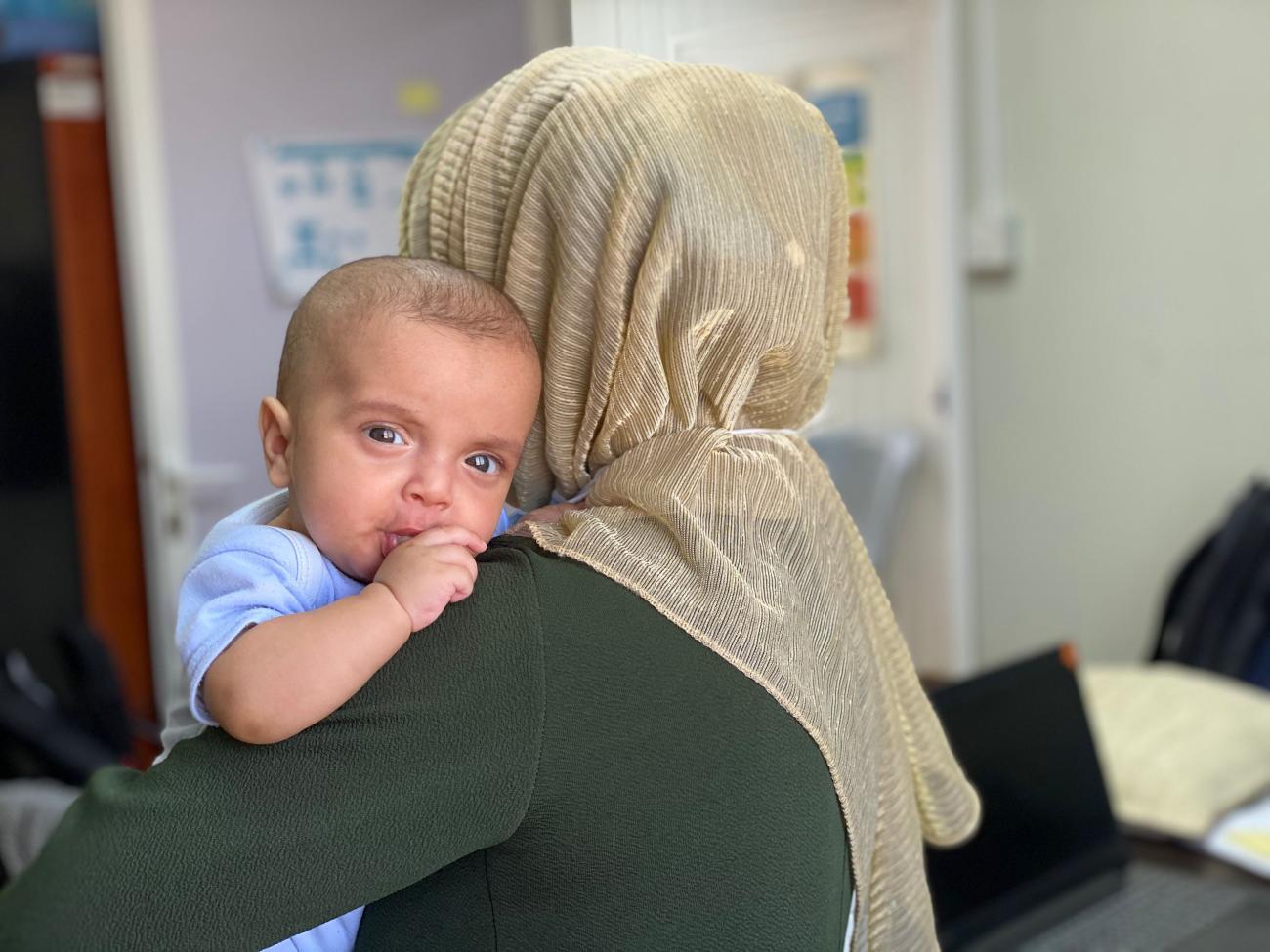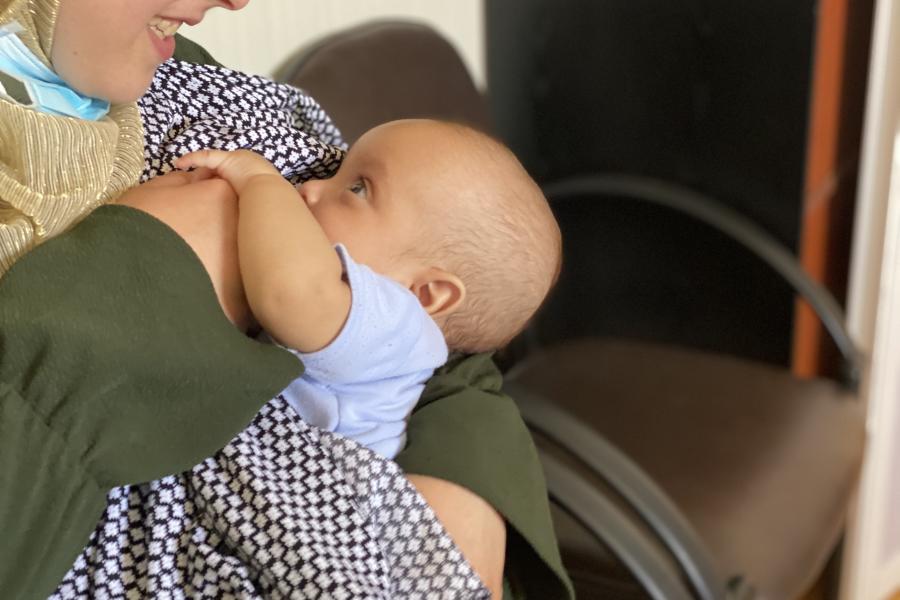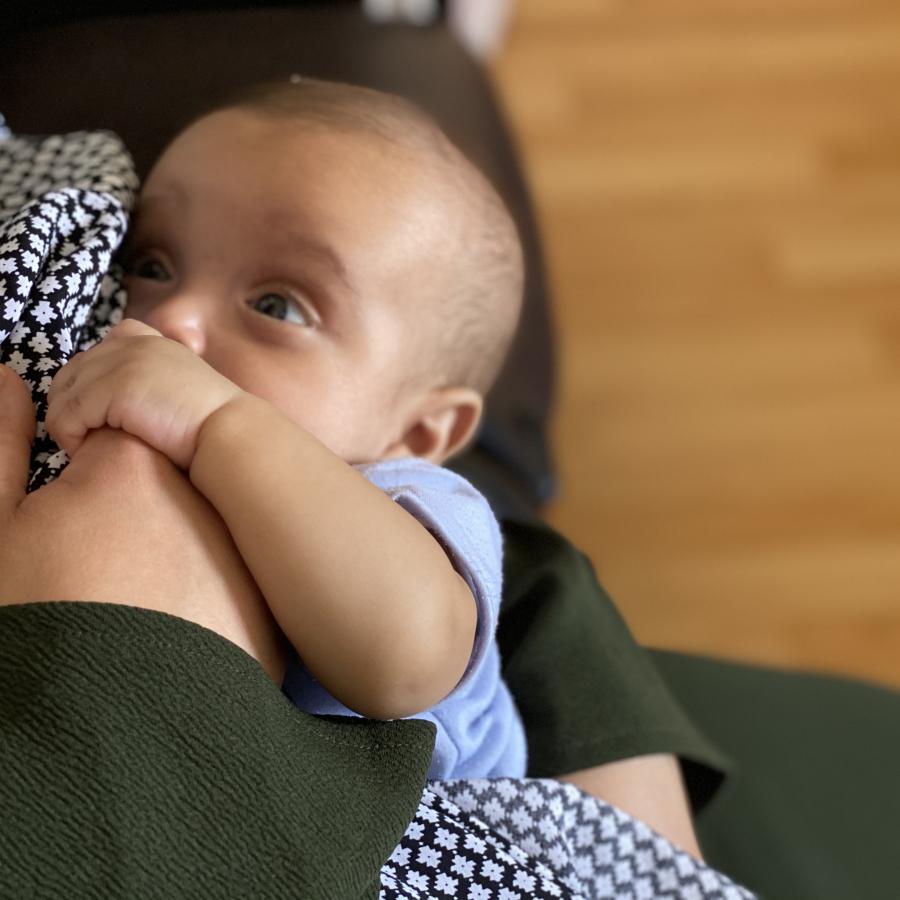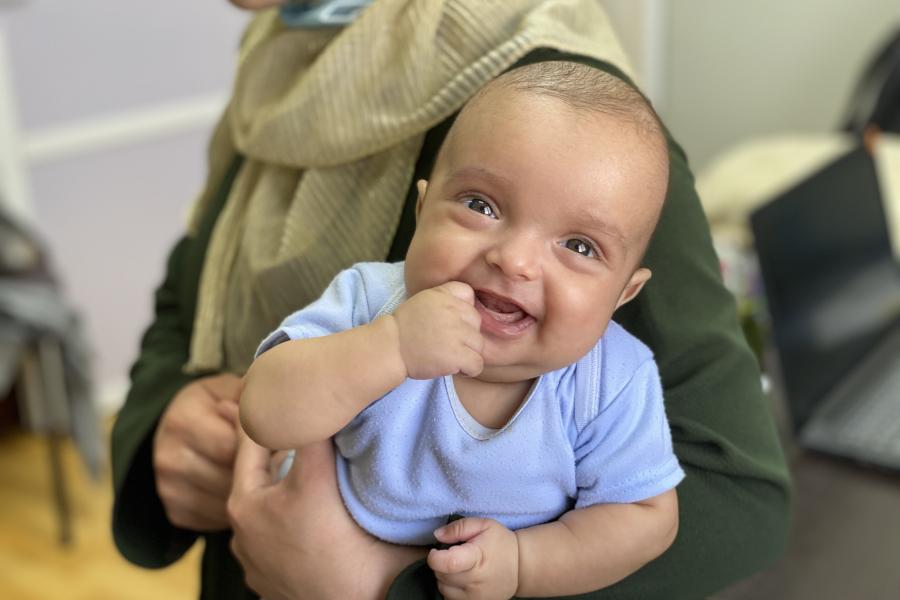Breastfeeding saves lives - Nasser’s story

For 20-year old Rahaf, being a mother for the first time is a blessing. Yet, it also presented a challenging experience.

“There is nothing like having your own child,” says Rahaf with a smile. “Though, I faced several complications during pregnancy, and I had no other choice but to deliver my child prematurely.”
Rahaf’s newborn baby boy was born prematurely. Nasser, who was named after his grandfather, was kept in an incubator.
“I was worried about my newborn’s health,” says Rahaf. “But, deep inside, I knew that he was in safe hands.”
After birth, Nasser was kept at a hospital that is recognized as a baby-friendly hospital. After two weeks, he was discharged with a stable condition and referred to the out-patient clinic for follow-up.
Rahaf is one of millions of Syrians who endured the impact of the violence in Syria. With her family, she left her hometown Dara’a at the age of 11.
“I recall the day when we left our home in Syria,” says Rahaf with a grin.
Rahaf, dropped out-of-school after completing Grade 5. She was not able to continue her education due to the conflict in Syria.
“I would have loved to continue my education,” says Rahaf. “I always dreamt of becoming a mathematics teacher, and who knows, maybe one day, I will realize my dream.”

Protect breastfeeding: a shared responsibility
“I started breastfeeding my baby to help him grow, especially that he was too tiny,” says Rahaf. “This was based on the advice given by Wa’ad, the female counselor at the clinic,” says Rahaf.
At the clinic, Wa’ad taught Rahaf how to exclusively breastfeed her baby on demand during the first six months of life. She also advised her to continue to breastfeed him for two years, while supplementing his diet with additional food when he reaches six months of age.
“My baby started gaining weight since I started breastfeeding him and so far, he is healthy,” says Rahaf with gratitude.
At five months, Nasser weighs almost 6 kilograms, up from 1.6 kilograms at birth. While he is still under-weight for his age, Rahaf is determined to continue breastfeeding him.
In Jordan, according to the Family Health Survey, more than 9 out of 10 children were breastfed at some point in their early lives. Yet, only 26 per cent of children were exclusively breastfed during the first six months of life, much lower than the regional average of 34 per cent.
“Breastfeeding saves lives and protects children from deadly infections,” says Wa’ad, breastfeeding counselor at the clinic. “Infants who are not fully or partially breastfed have a higher risk of diarrhea and respiratory infections among other diseases.”
Thanks to the generous contributions from US Department Bureau of Population, Refugees, and Migration and USAID, UNICEF is able to support the Jordanian Ministry of Health in its national health and nutrition programme.
UNICEF supports the Ministry of Health in glocalizing and implementing international infant and young child feeding practices protocols, in addition to strengthening systems through the implementation of the baby-friendly hospital initiative at 10 hospital facilities. Through community outreach, UNICEF is supporting awareness raising on the importance of early initiation of breastfeeding, timely introduction of complementary feeding after six months and continuation of breastfeeding up to two years.
“By supporting mothers like Rahaf to initiate breastfeeding within the first hour of birth and exclusively breastfeed their baby for six months, we are providing children with a powerful line of defense against infection and malnutrition,” says Buthayna Al Khatib, Nutrition Specialist, UNICEF Jordan. “Educating mothers on age- appropriate feeding practices plays a key role in reducing neonatal and infant mortality rates in the country.”
“All I dream of is to have my baby grow up healthy and enjoy a fulfilling life,” ends Rahaf.



